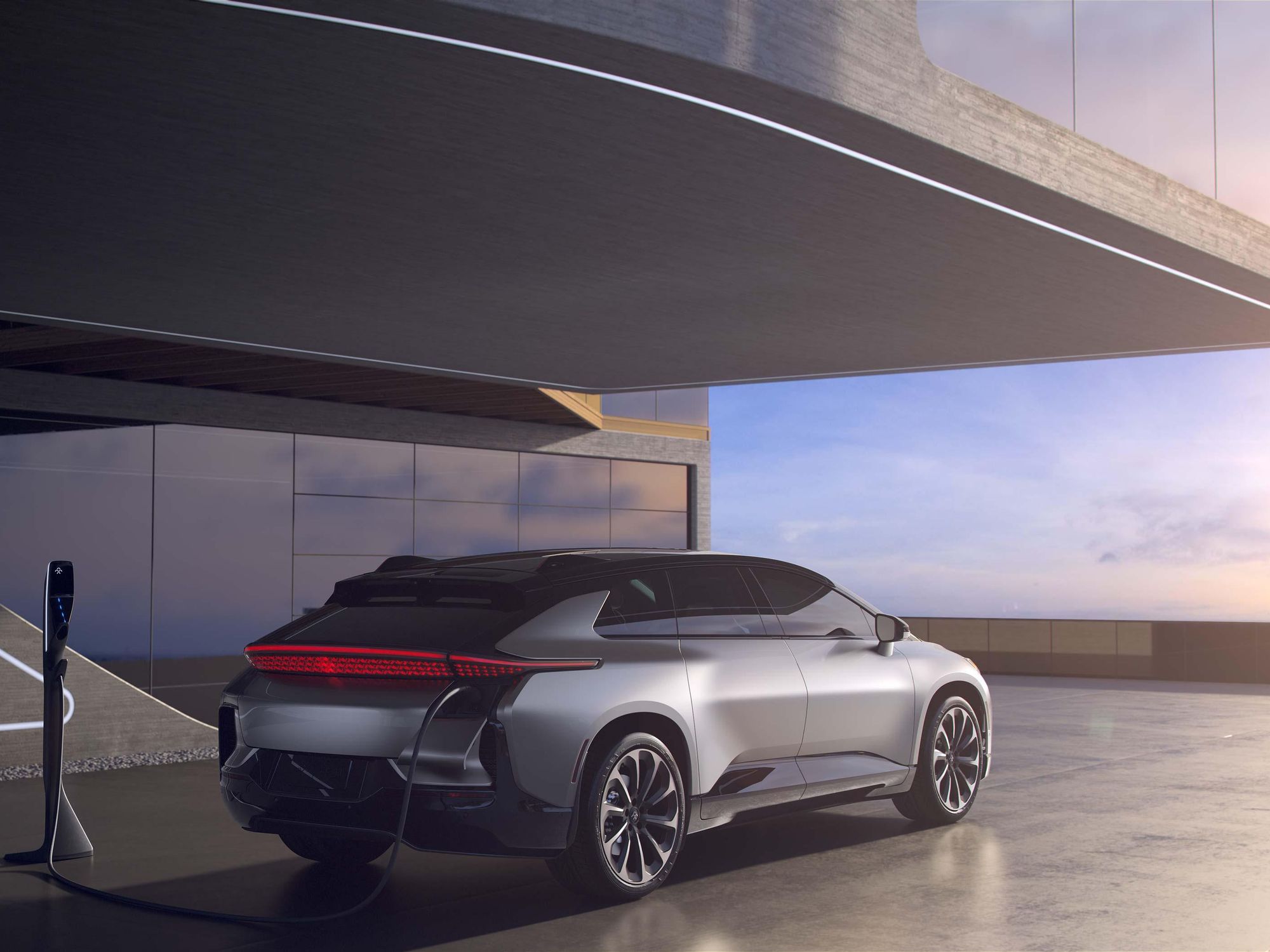Faraday Future Strikes a Deal with China's Top Auto Group as It Readies for a Wall Street Debut
Favot is an award-winning journalist and adjunct instructor at USC's Annenberg School for Communication and Journalism. She previously was an investigative and data reporter at national education news site The 74 and local news site LA School Report. She's also worked at the Los Angeles Daily News. She was a Livingston Award finalist in 2011 and holds a Master's degree in journalism from Boston University and BA from the University of Windsor in Ontario, Canada.

A day after luxury electric carmaker Faraday Future said it will go public, it announced a new partnership with China's largest privately-owned automotive group that could help it produce cars in China.
Gardena-based Faraday Future said Thursday it will merge with a special purpose acquisition corporation, or SPAC, Property Solutions Acquisition Corp., a deal which will value the combined company at around $3.4 billion and will raise about $1 billion, the company said in its announcement.
On Friday, the automaker made public that it had signed a cooperation agreement with Zhejiang Geely Holding Group, one of its minority investors. The companies will explore the possibility of using production services provided by a joint venture between Geely and Foxconn, a Taiwanese electronics contract manufacturer. Geely will also provide technology and engineering support to Faraday.
Bill Russo, founder and CEO of Shanghai-based Automobility, said Geely, which owns Volvo, has recently made several investments to build a portfolio around a new mobility-related platform.
"This is a full range transportation equipment ecosystem that Geely is building and Faraday completes part of the puzzle," Russo said.
Neither company provided more specifics about the partnership, but Reuters reported that Faraday plans to set up a new base in China. In a statement, Geely said new details will be "announced at a later date."
Faraday Future becomes the latest company in a wave of electric vehicle makers to go public through a merger with a SPAC, including Canoo, Fisker, Lordstown Motors and Nikola.
The merger is expected to fully fund the production of Faraday's luxury electric vehicle, the FF 91, within a year of the close of the transaction and will help the company finish construction of its factory in Hanford, California. No vehicles have been produced so far.
"This is an important milestone in our company's transformation,," Faraday Future Global CEO Carsten Breitfeld said in announcing the SPAC. "I am excited that this business combination will allow us to launch the class defining FF 91, building upon the founder's original vision to help our users and shareholders take part in shaping the future of mobility."
About $230 million of the proceeds from the merger is expected to come from the money raised by Property Solutions in its SPAC. The remaining $775 million will come from a private placement in public equity, or PIPE, investment.
After the merger is complete, it will be listed on the Nasdaq Stock Market under the ticker symbol "FFIE."
Analysts say the demand for electric vehicles will continue to grow as regulators crack down on emissions. The Biden administration has pledged to help develop an electric vehicle charging infrastructure as part of a jobs proposal for the automotive industry. Biden also said this week he wants to replace the government's fleet of 650,000 vehicles with electric models. And in California, Gov. Gavin Newsom ordered all new cars and passenger trucks sold in California be zero-emission by 2035.
General Motors said Thursday it will stop production of gasoline-powered cars, trucks and SUVs by 2035 and shift its entire new fleet to zero-emission vehicles.
Faraday has faced some financial challenges since it launched in 2014 with a stated ambition to overtake Tesla.
Chinese technology mogul Jia Yueting, who founded the company, filed for Chapter 11 bankruptcy in 2019, which was completed in July.
Yueting stepped down from his role as CEO is now serving as the chief product and ecosystem officer at the company.
Breitfeld is a former BMW executive who took the helm in 2019.
Faraday expects to sell more than 400,000 vehicles over the next five years, saying its FF 91 has received 14,000 reservations.
- Fisker and Apple Manufacturer Foxconn to Build Electric Cars - dot.LA ›
- Faraday Future Looks to Grow in China - dot.LA ›
- Faraday Future's First Car Goes Into Production Next Summer - dot.LA ›
- Does Faraday Future Have a Future? - dot.LA ›
- Does Faraday Future Have a Future? - dot.LA ›
- Faraday Future Plans to Launch Its First Electric Car - dot.LA ›
Favot is an award-winning journalist and adjunct instructor at USC's Annenberg School for Communication and Journalism. She previously was an investigative and data reporter at national education news site The 74 and local news site LA School Report. She's also worked at the Los Angeles Daily News. She was a Livingston Award finalist in 2011 and holds a Master's degree in journalism from Boston University and BA from the University of Windsor in Ontario, Canada.





 Image Source: Skyryse
Image Source: Skyryse